Charles E W Bean, Diaries, AWM38 3DRL 606/77/1 - April - May 1917 - Part 3
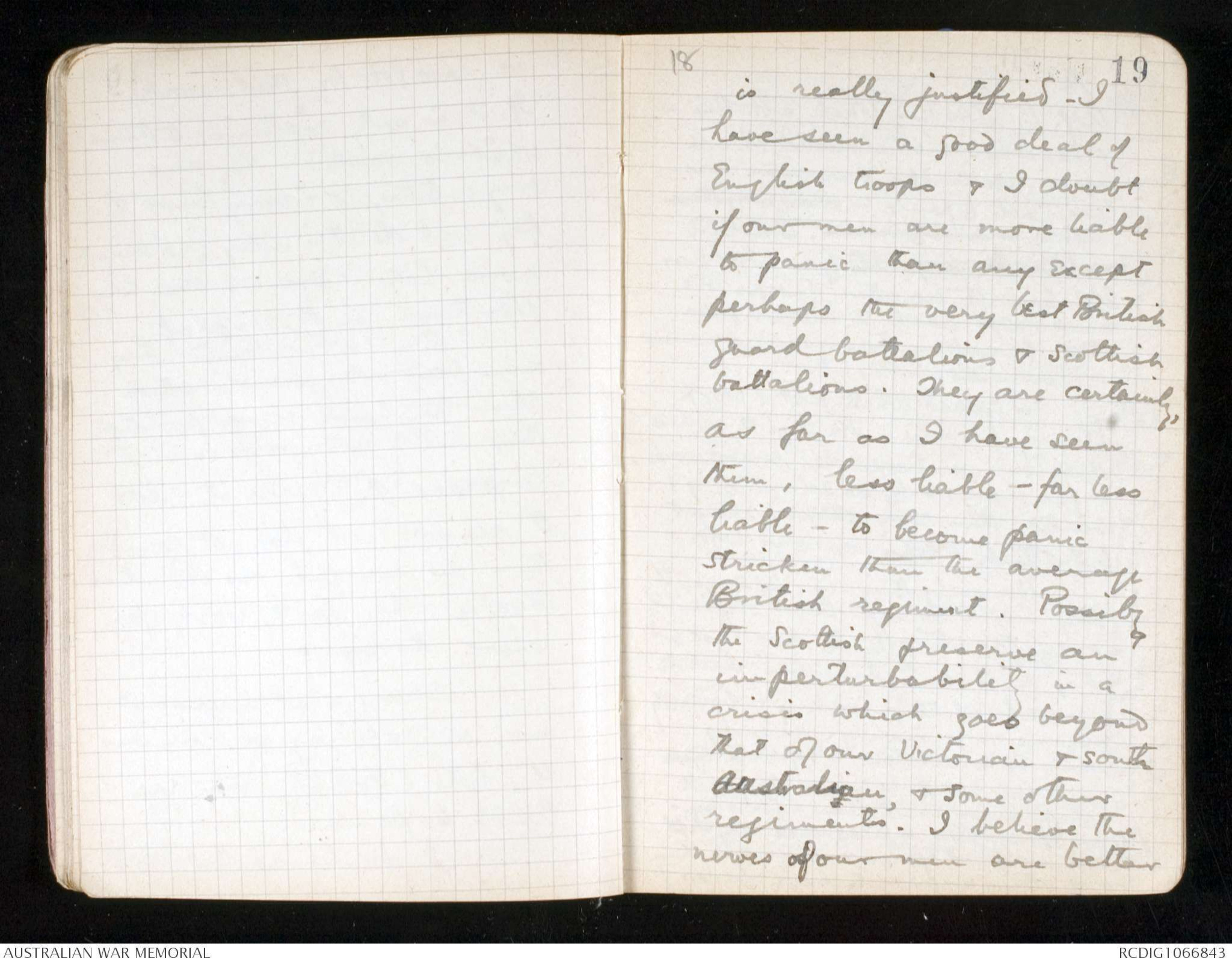
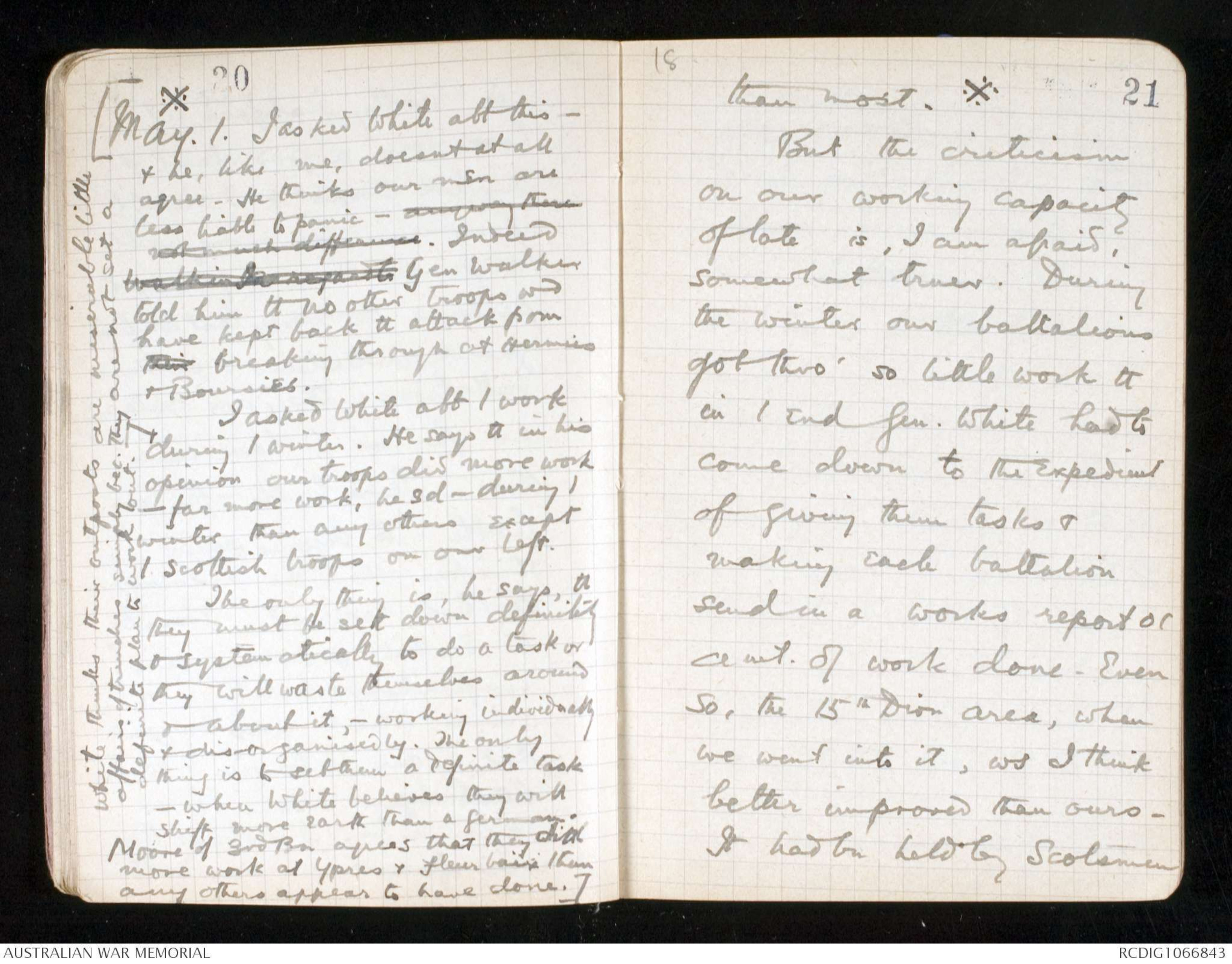
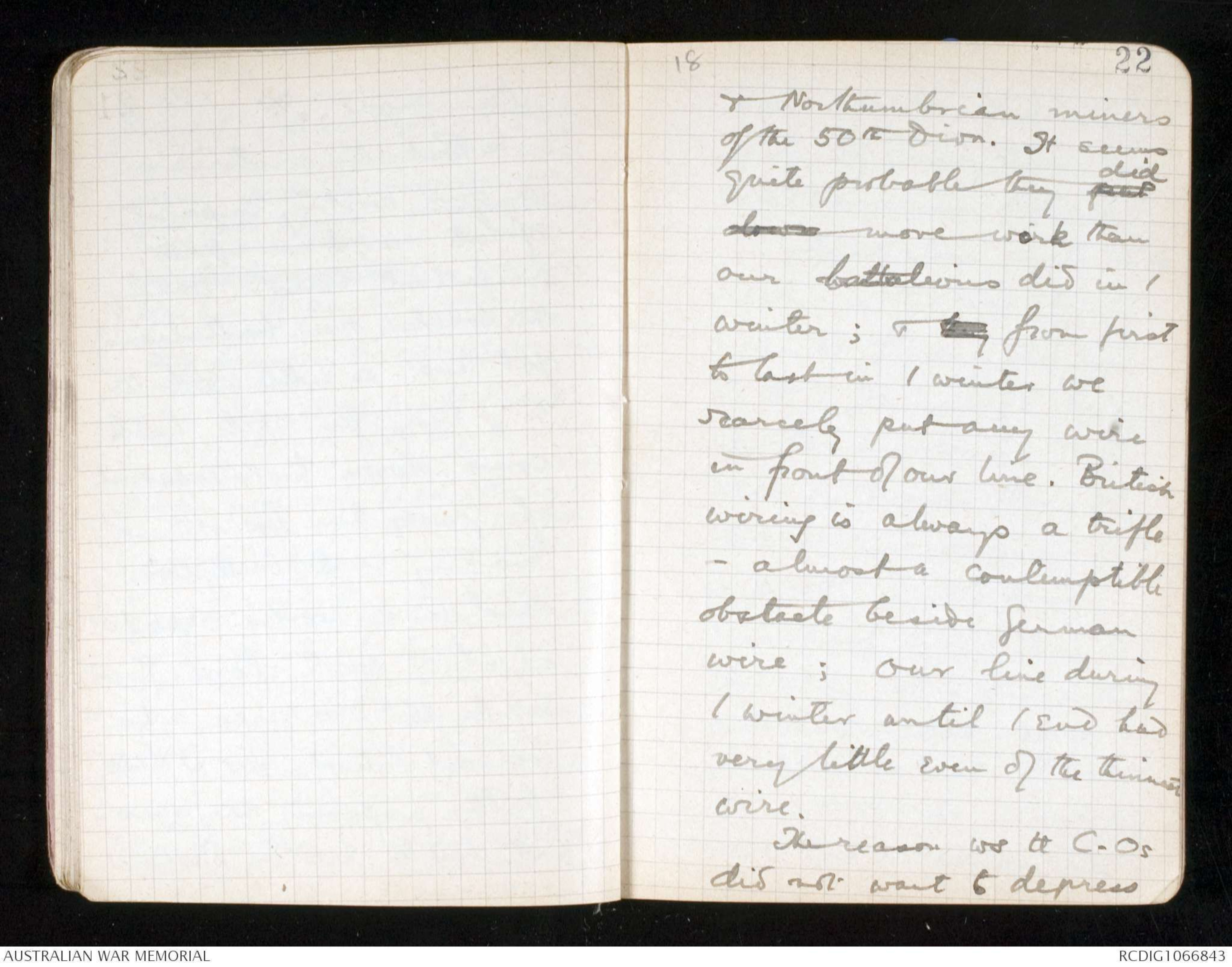
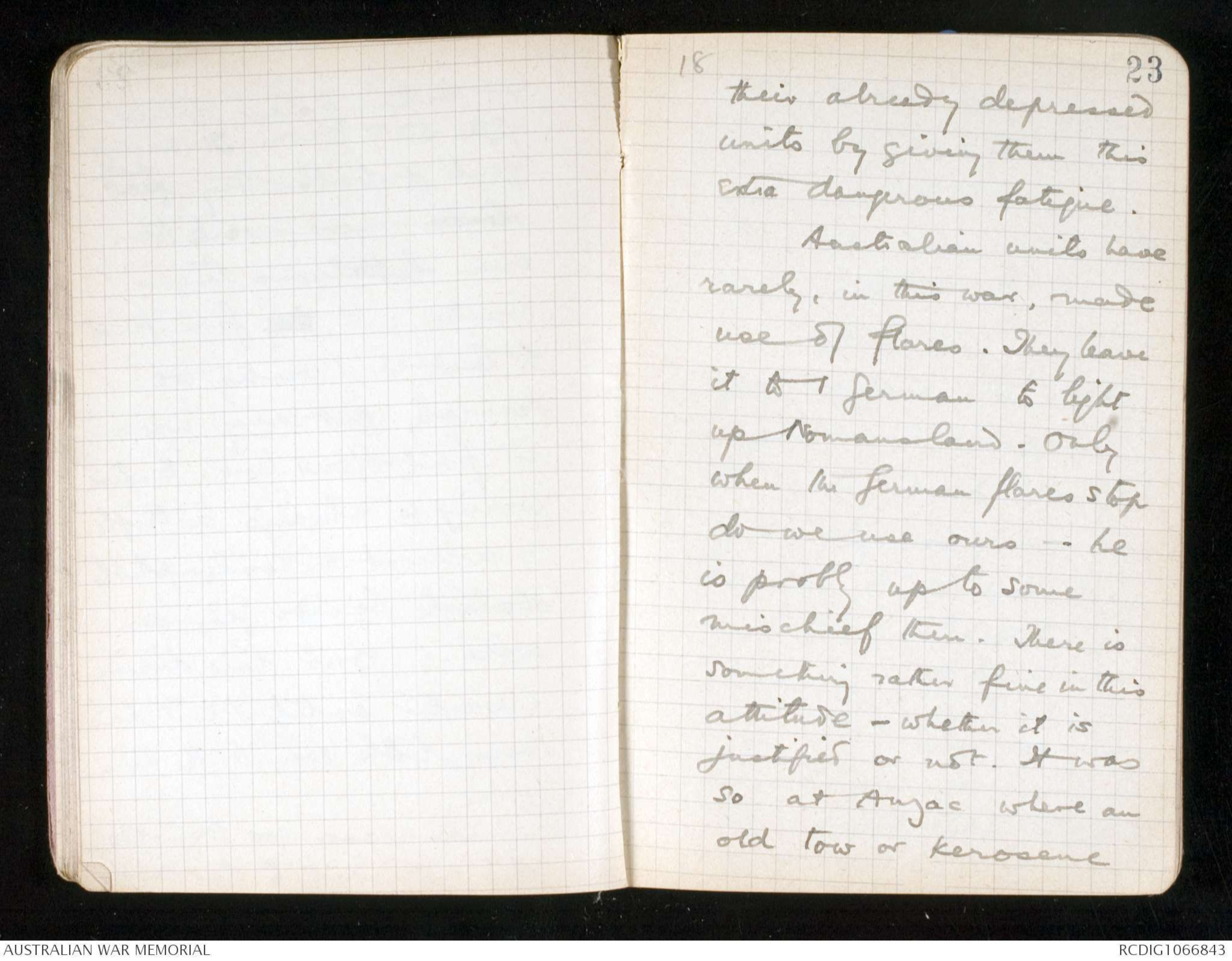
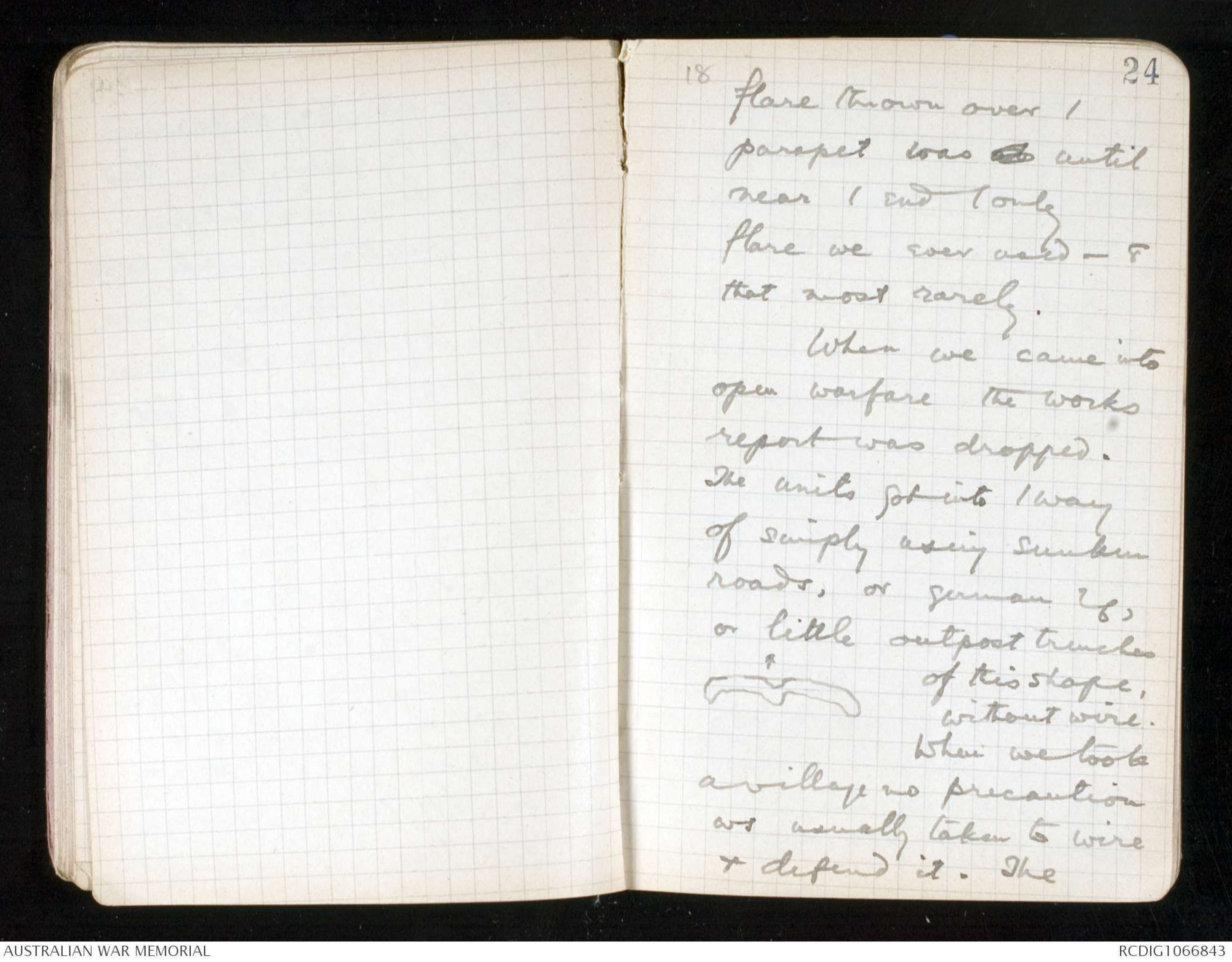
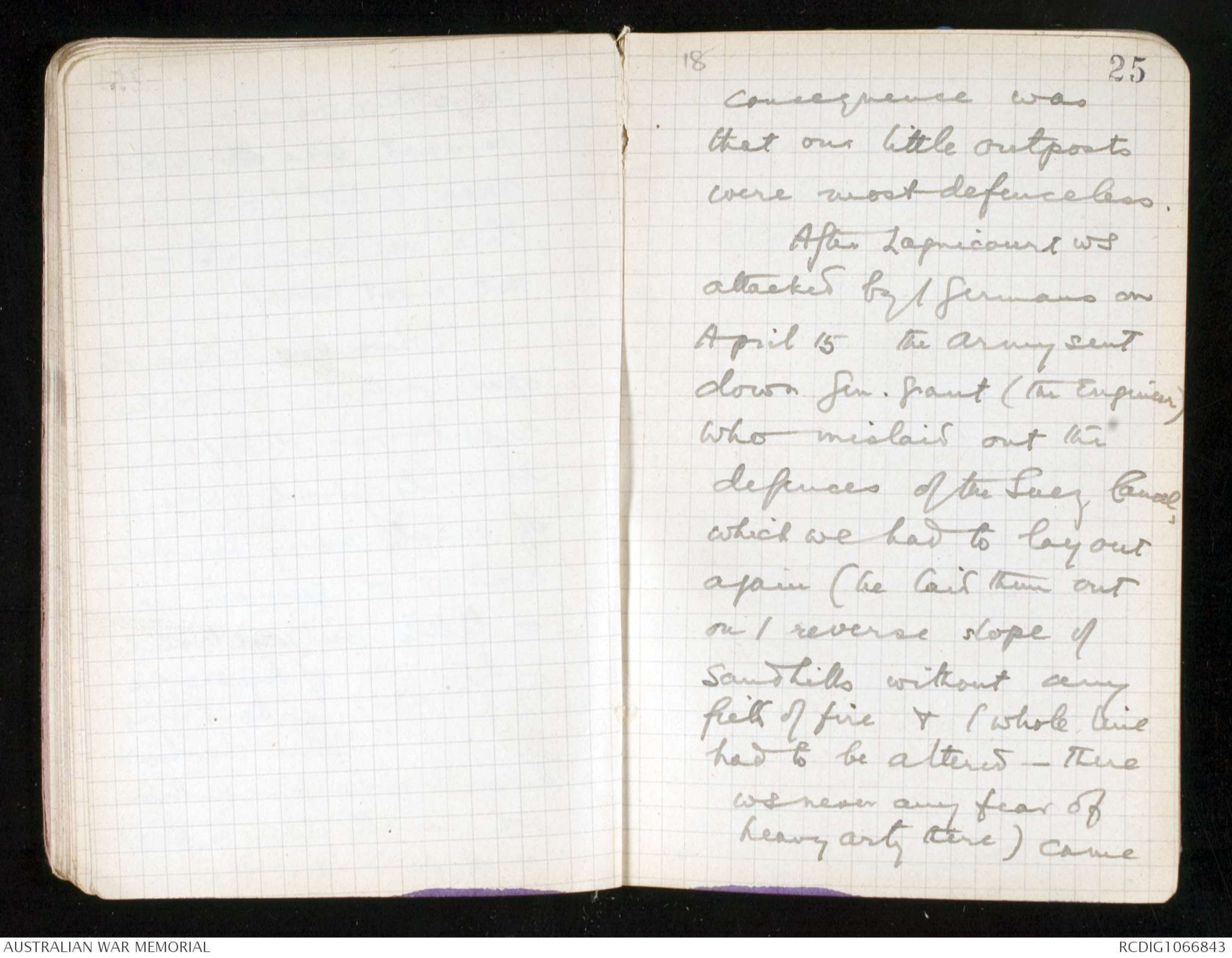
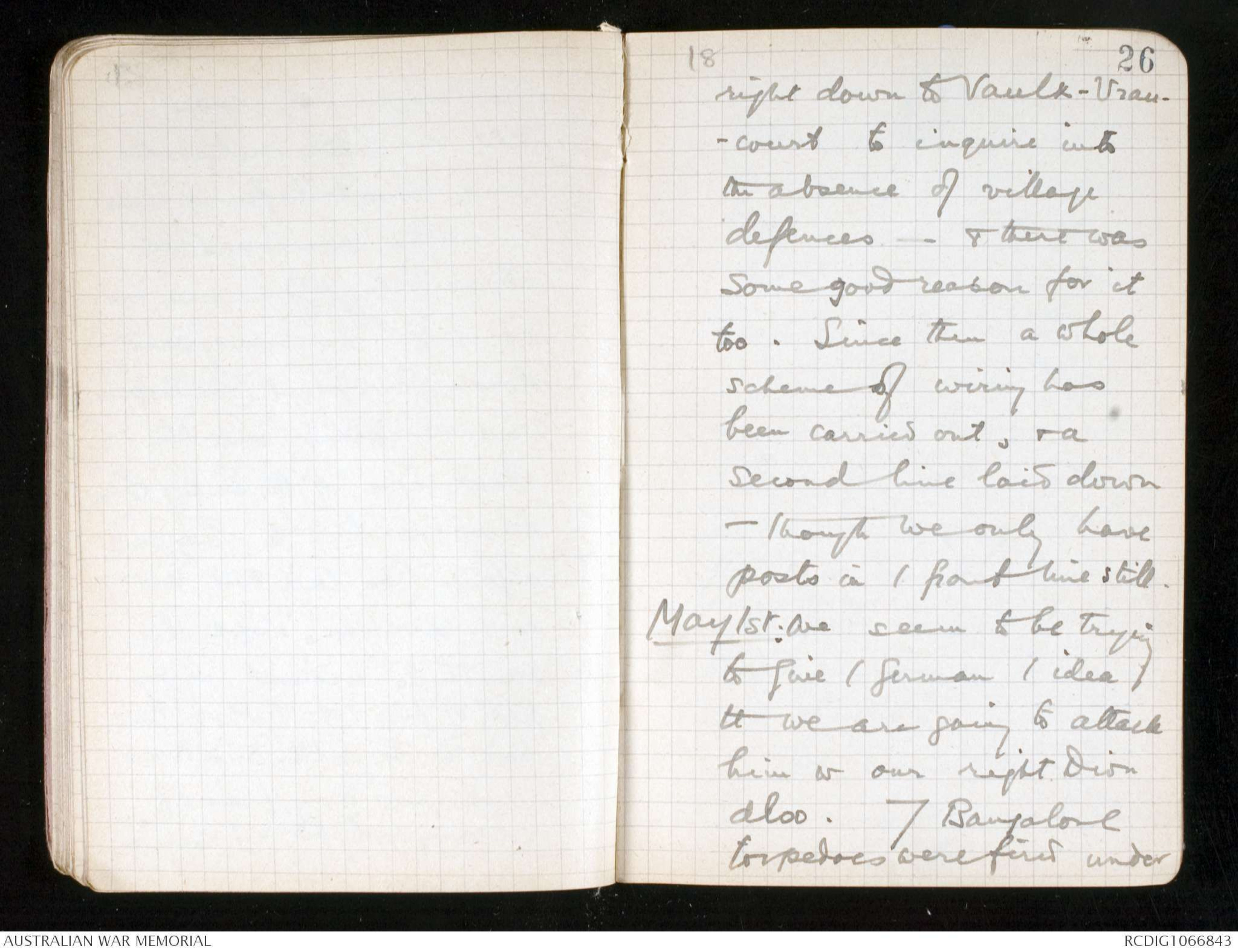
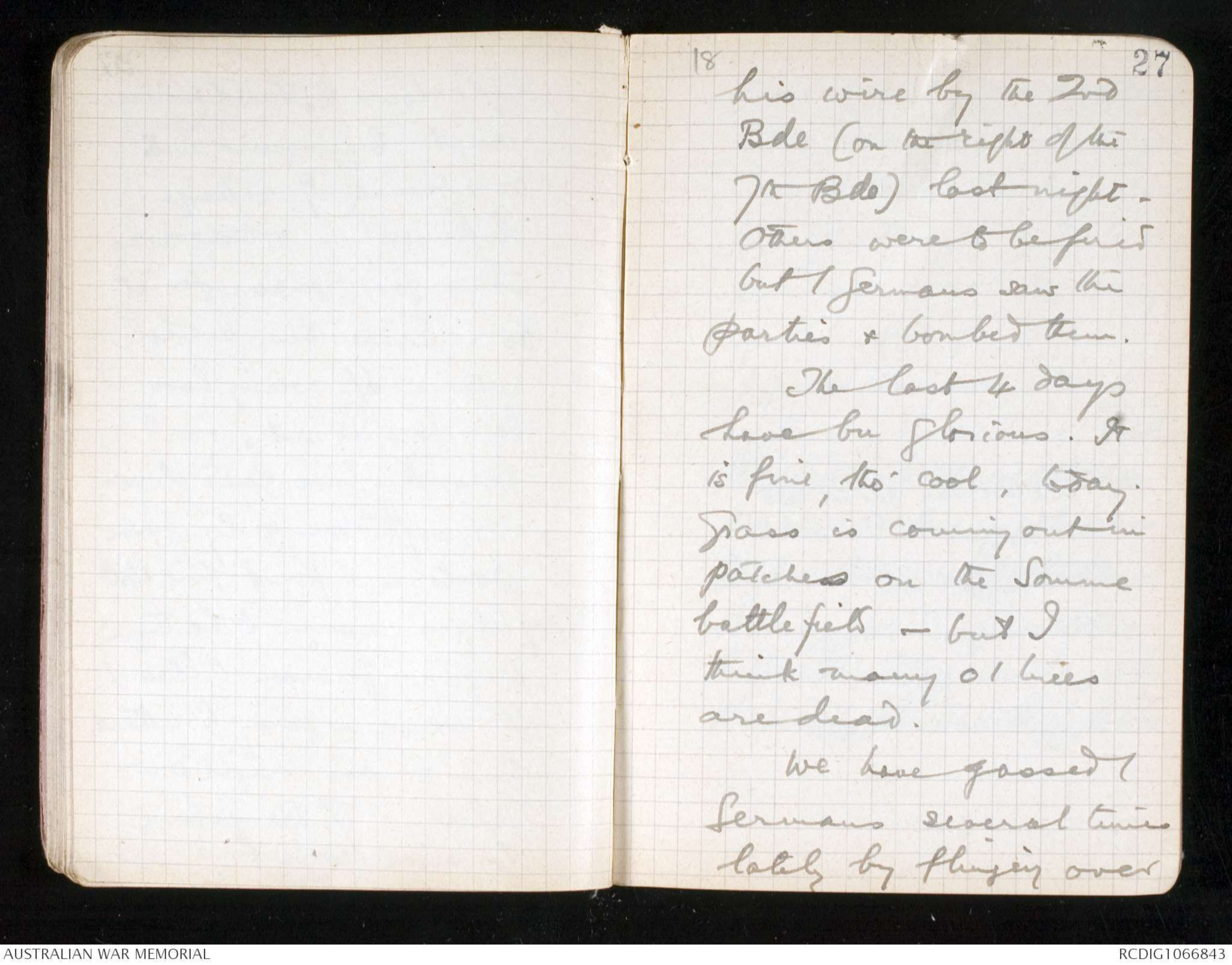
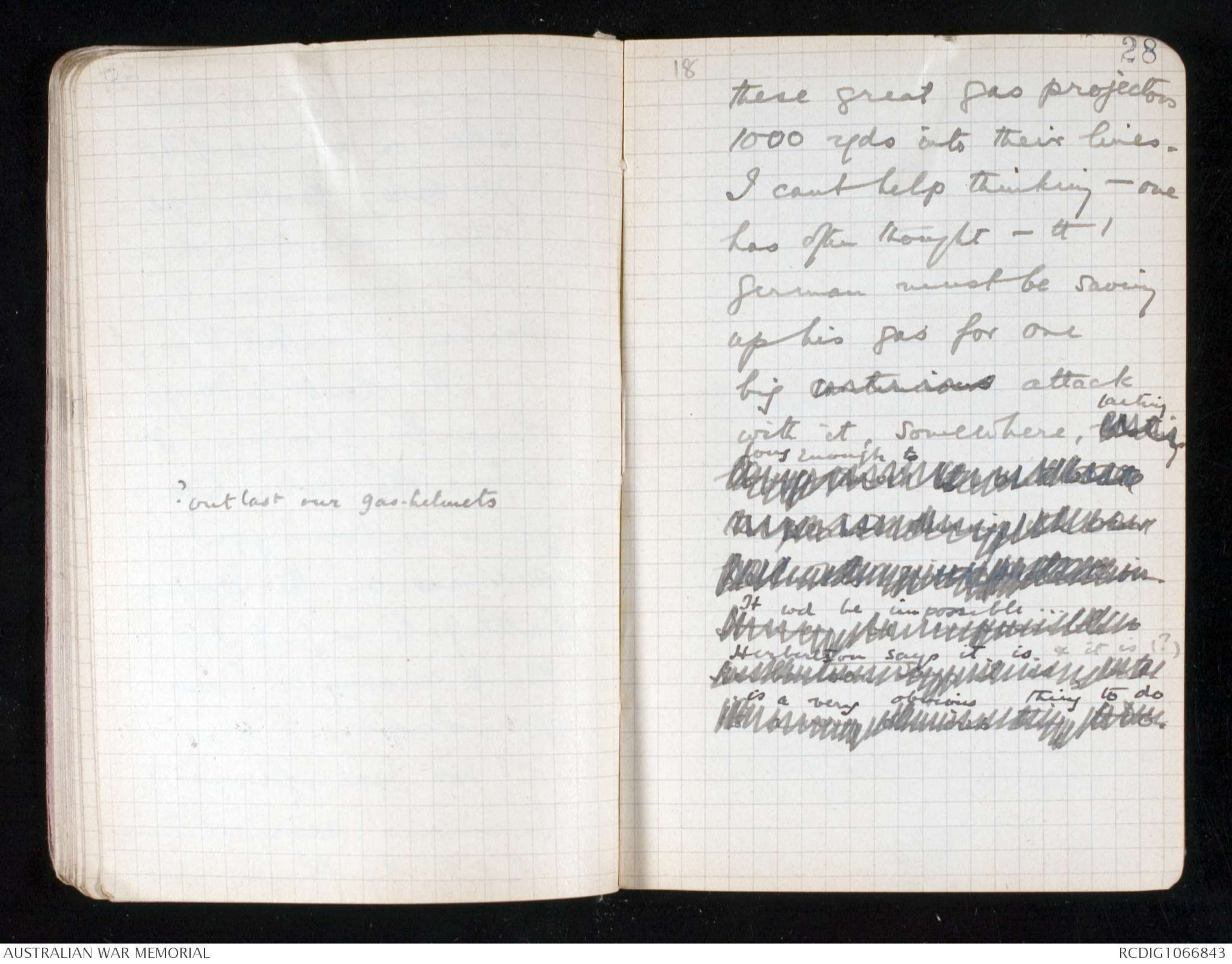
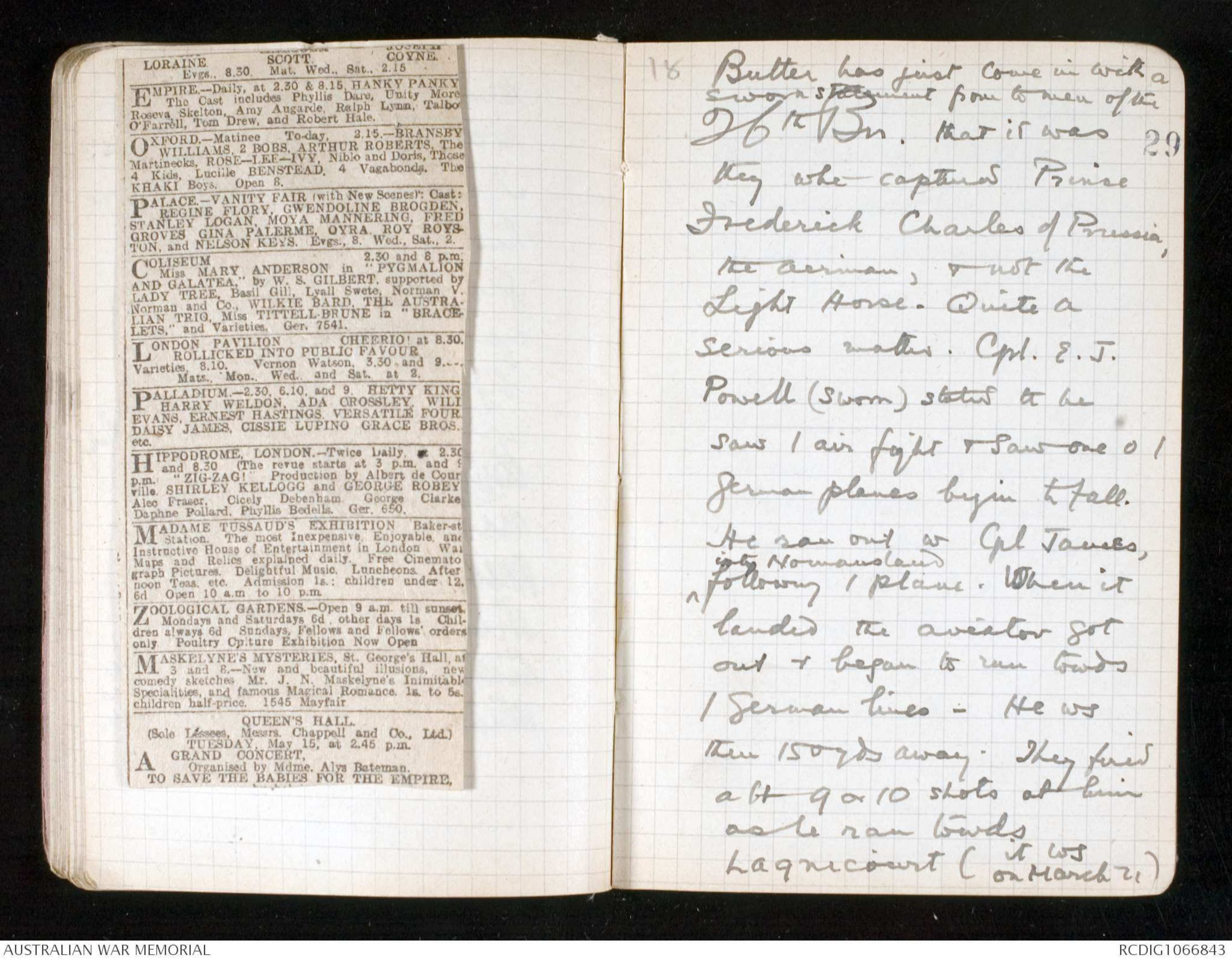
18 19
Is really justified - I
have seen a good deal of
English troops & I doubt
if our men are more liable
to panic than any except
perhaps the very best British
guard battalions & Scottish
battalions. They are certainly,
as far as I have seen
them, less liable - far less
liable - to become panic
stricken than the average
British regiment. Possibly
the Scottish preserve an
imperturbability in a
crisis which goes beyond
that of our Victorian & South
Australian, & some other
regiments. I believe the
nerves of our men are better
20
[:X: May. 1. I asked White abt this -
& he, like me, doesnt at all
agree. He thinks our men are
less liable to panic - anyway theresnot much difference. Indeed Walker in regards to Gen Walker
told him tt no other troops wd
have kept back tt attack fromtheir breaking through at Hermies
& Boursies.
I asked White abt / work
during / winter. He says tt in his
opinion our troops did more work
- far more work, he sd - during /
winter than any others except
/ Scottish troops on our left.
The only thing is, he says, tt
they must set down definitely
& systematically to do a task or
they will waste themselves around
& about it, - working individually
& disorganisedly. The only
thing is to set them a definite task
- when White believes they will
shift more earth than a German.
Moore of 3rd Bn agrees that they did
more work at Ypres & Fleurbaix than
any others appear to have done.]
[*White thinks their outposts are miserable little
affairs of trenches simply bec. they are not set a
definite plan to work out.*]
18 21
than most. :X:
But the criticism
on our working capacity
of late is, I am afraid,
somewhat truer. During
the winter our battalions
got thro' so little work tt
in / end Gen. White had to
come down to the expedient
of giving them tasks &
making each battalion
send in a works report o /
amt. of work done. Even
so, the 15th Divn area, when
we went into it, ws I think
better improved than ours -
It had bn held by Scotsmen
18 22
& Northumbrian miners
of the 50th Divn. It seems
quite probable they put did
down more work than
our battalions did in /
winter; & xxxx from first
to last in / winter we
scarcely put any wire
in front of our line. British
wiring is always a trifle
- almost a contemptible
obstacle beside German
wire; our line during
/ winter until / end has
very little even of the thinnest
wire.
The reason ws tt C.Os
did not want to depress
18 23
their already depressed
units by giving them this
extra dangerous fatigue.
Australian units have
rarely, in this war, made
use of flares. They leave
it to / German to light
up Nomansland. Only
when the German flares stop
do we use ours - he
is probly up to some
mischief then. There is
something rather fine in this
attitude - whether it is
justified or not. It was
so at Anzac where an
old tow or Kerosene
18 24
flare thrown over /
parapet was ab until
near / end / only
flare we ever used - &
that most rarely.
When we came into
open warfare the works
report was dropped.
The units got into / way
of simply using sunken
roads, or German trenches
or little outpost trenches
Diagram - see original scan
of this shape,
without wire.
When we took
a village no precaution
ws usually taken to wire
& defend it. The
18 25
consequence was
that our little outposts
were most defenceless.
After Lagnicourt ws
attacked by / Germans on
April 15 the Army sent
down Gen. Grant (the engineer)
who mislaid out the
defences of the Suez Canal,
which we had to lay out
again (he laid them out
on / reverse slope of
sandhills without any
field of fire & / whole line
had to be altered - there
ws never any fear of
heavy arty there) came
18 26
right down to Vaulx-Vraucourt
to inquire into
the absence of village
defences - & there was
some good reason for it
too. Since then a whole
scheme of wiring has
been carried out, & a
second line laid down
- though we only have
posts in / front line still.
May 1st: We seem to be trying
to give / Germans / idea
tt we are going to attack
him w our right Divn
also. 7 Bangalore
torpedoes were fired under
18 27
his wire by the 2nd
Bde) (on the right of the
7th Bde) last night.
Others were to be fired
but / Germans saw the
parties & bombed them.
The last 4 days
have bn glorious. It
is fine, tho' cool, today.
Grass is coming out in
patches on the Somme
battlefield - but I
think many o / trees
are dead.
We have gassed /
Germans several times
lately by flinging over
? outlast our gas-helmets
18 28
these great gas projectors
1000 yds into their lines.
I can't help thinking - one
has often thought - tt /
German must be saving
up his gas for one
big continuous attack
with it, somewhere, xxxxxx lasting
xxxxxxxxxxxxxxxxxxx long enough to
xxxxxxxxxxxxxxxxxxx
xxxxxxxxxxxxxxxxxxx
xxxxxxxxxxxxxxxxxxx It wd be impossible.
xxxxxxxxxxxxxxxxxxx Herbertston says it is. & it is (?)
xxxxxxxxxxxxxxxxxxx is a very obvious thing to do
Newspaper cutting - see original scan
18 29
Butter has just come in with a
sworn statement from to men of the
26th Bn. that it was
they who captured Prince
Frederick Charles of Prussia,
the airman, & not the
Light Horse. Quite a
serious matter. Cpl. E.J.
Powell (sworn) states tt he
saw / air fight & saw one o /
German planes begin to fall.
He ran out w Cpl James,
^into Nomansland following / plane. When it
landed the aviator got
out & began to run towds
/ German lines - he ws
then 150 yds away. The fired
abt 9 or 10 shots at him
as he ran towds
Lagnicourt (it ws on March 21)
 Deb Parkinson
Deb ParkinsonThis transcription item is now locked to you for editing. To release the lock either Save your changes or Cancel.
This lock will be automatically released after 60 minutes of inactivity.